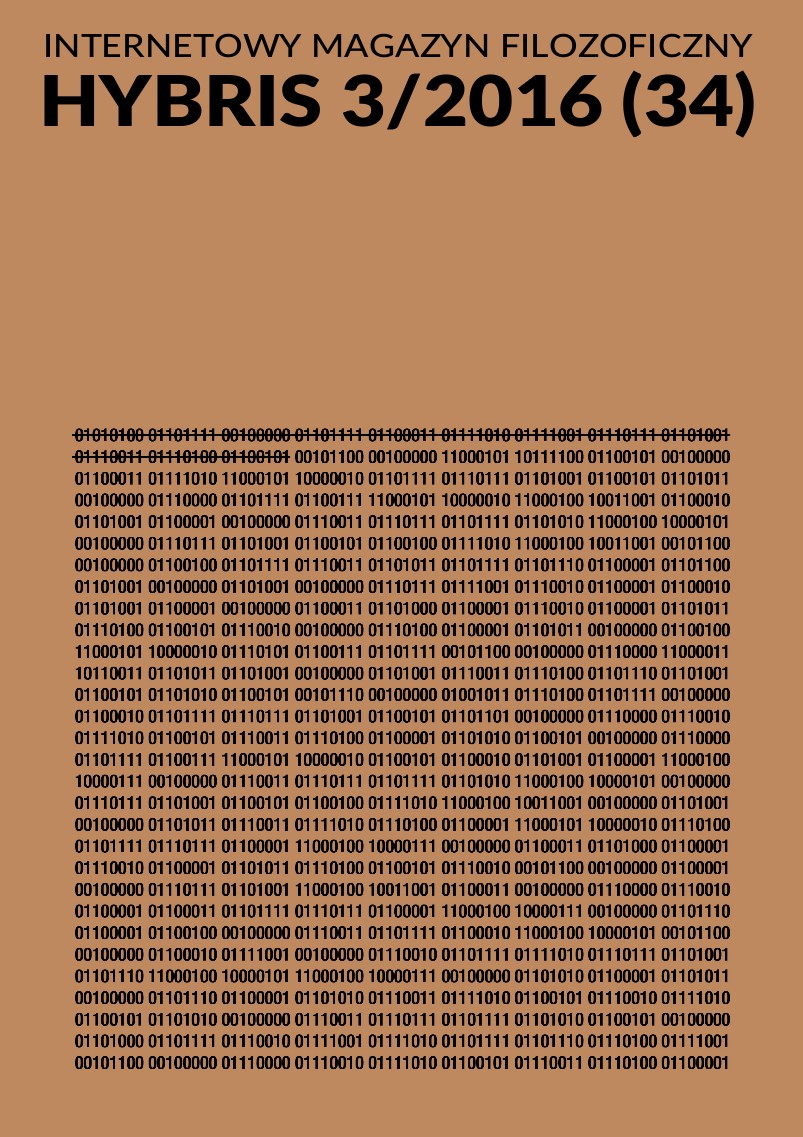Kripkenstein from the mathematical point of view: a preliminary survey
DOI:
https://doi.org/10.18778/1689-4286.34.10Słowa kluczowe:
Kripke, philosophy of mathematics, non-factualism, PlatonismAbstrakt
This paper deals with the problem of the impact of Kripke’s skeptical paradox on the philosophy of mathematics. By perceiving mathematics as a huge rule-following discipline, one could argue that the Kripkean non-factualist thesis should be adopted within the philosophy of mathematics en bloc to imply a refutation of objectivity and an enforcement of a particular view on the nature of mathematics. In this paper I will discuss this claim. According to Kripke’s skeptical solution we should reject the notion of fact and adopt the use theory of meaning that could be stated as follows: ’One understands the concepts embodied in a language to the extent that one knows how to use the language correctly.’ [Shapiro 1991, 211] [Kripke 1982]. Focusing on mathematical discourse, we should ask: what are the implications of the use theory of meaning for the philosophy of mathematics? Furthermore, is the answer to the skeptical paradox consistent with selected views in philosophy of mathematics? The supposed answer to the first question is that it demands the view that mathematics should be perceived as a strictly pragmatic discipline and the rules of mathematical discourse are mere conventions. But this is too simplistic a view and the matter at hand is far more complicated.
Bibliografia
Boghossian, P., (1989). The Rule-Following Considerations. Mind, (98(392)).
Zobacz w Google Scholar
DOI: https://doi.org/10.1093/mind/XCVIII.392.507
Boghossian, P., (1990). The Status of Content. The Philosophical Review, Vol. XCIX, No. 2.
Zobacz w Google Scholar
DOI: https://doi.org/10.2307/2185488
Dummett, M., (1973). Truth and other enigmas. Harvard Univ Press.
Zobacz w Google Scholar
Horsten, L., (2012). Philosophy of mathematics. In Zalta, E. N., editor, The Stanford Encyclopedia of Philosophy. Summer 2012 edition.
Zobacz w Google Scholar
Horwich, P., (1998). Meaning. Oxford, Clarendon Press.
Zobacz w Google Scholar
DOI: https://doi.org/10.1093/019823824X.001.0001
Kripke, S., (1982). Wittgenstein on rules and private language. Harvard Univ Press.
Zobacz w Google Scholar
Kusch, M., (2006). A Sceptical Guide to Meaning and Rules: Defending Kripke’s Wittgenstein. Acumen and McGill-Queen’s.
Zobacz w Google Scholar
DOI: https://doi.org/10.1017/UPO9781844653782
Posłajko, K., (2012). To wszystko nic nie znaczy. Faktualizm i nonfaktualizm w teorii znaczenia. OBI.
Zobacz w Google Scholar
Ryle, G., (1951). The Concept of Mind. Hutchinsons University Library.
Zobacz w Google Scholar
Shapiro, S., (1991). Foundation without Foundationalism: A Case for Second-order Logic. Clarendon Press.
Zobacz w Google Scholar
Shapiro, S. (ed.) (2007). The Oxford Handbook of Philosophy of Mathematics and Logic. Oxford University Press.
Zobacz w Google Scholar
DOI: https://doi.org/10.1093/oxfordhb/9780195325928.001.0001
Tait, W., (2005). The Provenance of Pure Reason. Oxford University Press.
Zobacz w Google Scholar
Wilson, G., (1994). Kripke on Wittgenstein on Normativity. Midwest Studies in Philosophy, 19 (1994).
Zobacz w Google Scholar
DOI: https://doi.org/10.1111/j.1475-4975.1994.tb00295.x
Wright, C., (1984). Kripke’s Account of the Argument Against Private Language. Journal of Philosophy 71.
Zobacz w Google Scholar
DOI: https://doi.org/10.2307/2026031
Wright, C., (1993). Realism, Meaning and Truth. Wiley-Blackwell.
Zobacz w Google Scholar
Pobrania
Opublikowane
Jak cytować
Numer
Dział
Licencja

Utwór dostępny jest na licencji Creative Commons Uznanie autorstwa – Użycie niekomercyjne – Bez utworów zależnych 4.0 Międzynarodowe.






